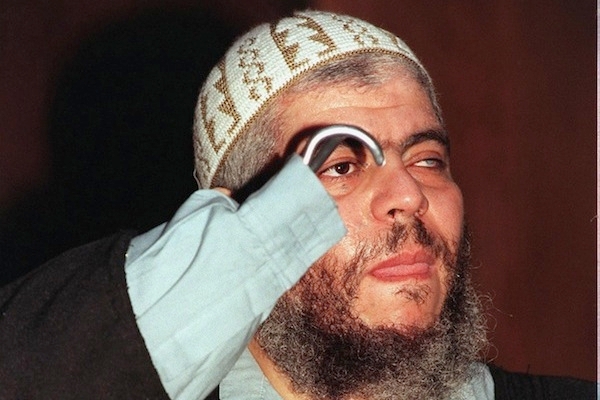For years he was the face of radical Islam in Britain – a living caricature of the ‘mad mullah’ — the hook handed, eye patch wearing cleric Abu Hamza. Famous for holding congregational prayers on the streets of Finsbury Park and railing against the West, the era of Abu Hamza is now finally drawing to a close
Yesterday, the European Court of Human Rights refused a request by Abu Hamza and four others to have their case referred to its Grand Chamber. This means they have now exhausted all their avenues of appeal through the Strasbourg courts and will soon be extradited to the United States.
The Home Office has already told the BBC that Abu Hamza will be removed from the country ‘as soon as possible’. His departure will mark the end a remarkable chapter in the history of Britain’s curious, at times utterly inexplicable, relationship with radical Islam.
Yesterday’s ruling means a total of five men wanted on terrorism charges in the United States will now be extradited very shortly. In addition to Abu Hamza, the others include Babar Ahmad and Syed Talha Ahsan who are accused of running a website that raised funds for the Taliban. Two other men, Adel Abdul Bary and Khaled al-Fawwaz will be tried for having links to Osama bin Laden. Both have been indicted by the FBI for alleged support or involvement with the 1998 twin embassy bombings in East Africa which claimed more than 200 lives.
All of these men have resisted deportation on the grounds that doing so would expose them to such mistreatments as solitary confinement, limited family visits, and restricted reading material. Meanwhile, the ‘decadent West’ which they spent their lives railing against has extended them due process, legal representation, and the dignity of having their cases heard by an independent judiciary – the very courtesies of justice and equity they denied their alleged victims.






Comments